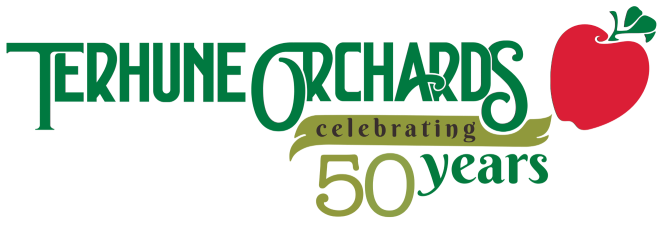Our Sustainable Farming Practices
Terhune Orchards is recognized by the New Jersey Department of Environmental Protection as a sustainable farm. All of our crops are grown using sustainable practices and a science-based system of farming called Integrated Pest Management (IPM). Our farm works closely with Rutgers and its IPM scout program to ensure healthy crops in a way that combines environmentally sound, scientific and targeted pest, disease and weed management.
Terhune Orchards is United States Department of Agriculture (USDA) certified organic in our vegetable production, which means our organic crops are evaluated by inspectors to make sure we are following organic guidelines.
As involved members of the community, we believe it’s important to share how we go about providing fresh produce.
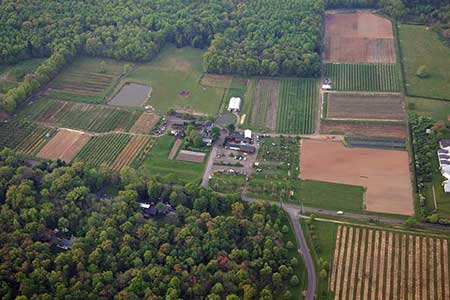
Farmland Preservation
Terhune Orchards is part of the Farmland Preservation Program. This is a long-term commitment to open space, and it means that our farm can never be developed for anything other than agriculture. As we farm, we are always planning for the future and the next generation.
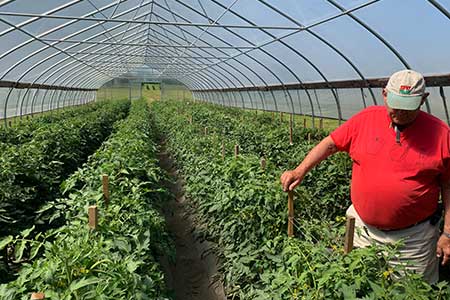
Bio-Rational Strategy
Terhune Orchards uses an approach that owner Gary Mount calls “bio-rational.” This means reducing inputs by applying sound science through multiple avenues, including Integrated Pest Management (IPM) and organic practices. As part of IPM, we use frequent scouting of the crops by experts from Rutgers University to assess insect populations and spot evidence of emerging disease or insects, a mini weather station to correlate rainfall and temperature with disease risk, and mating disruption strategies to break the reproductive cycle of insect pests. We conduct test plots with researchers from Rutgers to determine ways to reduce inputs while still dealing with pervasive pests, such as the stink bug.
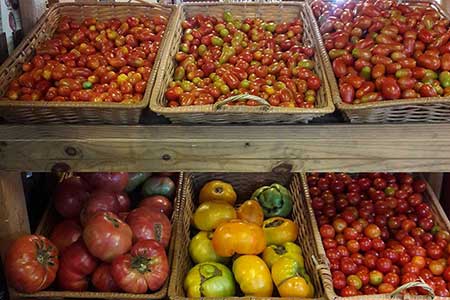
Crop Diversity
Part of our growing methods at Terhune Orchards involves maintaining diversity as well as heirloom seeds. For example, we grow more than 30 varieties of apples and 20 kinds of peaches. We also grow 15 types of tomatoes, and most of them are heirloom varieties.
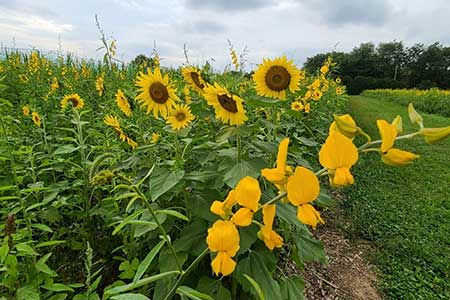
Soil Conservation
We partner with experts such as the Natural Resources Conservation Service and Soil Conservation District to preserve and build our soils. We use methods such as crop rotation and cover crops to help maintain and augment our soils.
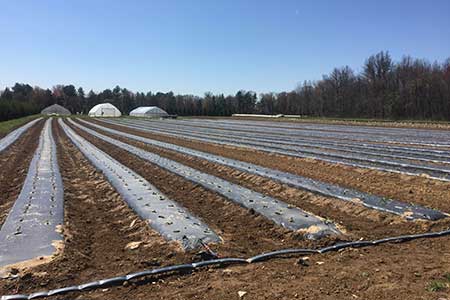
Water Conservation
Our goal is to minimize the use of water while maximizing its effects. During the summer months, a team member checks all around the farm several times a week recording soil moisture readings. A device called a tensiometer registers electrical resistance according to the moisture content of the soil. When the reading is high, the plants need moisture; when the reading is low, the ground is moist enough. We plant many of our crops in raised beds, covered by black plastic. This has the dual benefit of weed management and conserving moisture for the plants under the cover; trickle irrigation goes under the cover.
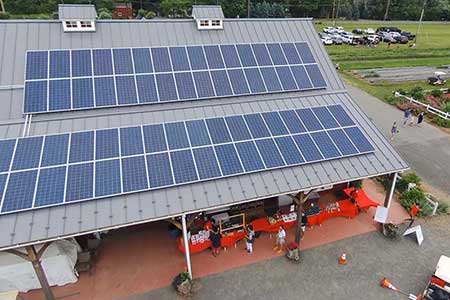
Energy Conservation
We installed solar panels on our two newer barns and work hard to minimize energy use at our farm. The solar panels on these barns produce enough energy to power the coolers and equipment inside these buildings. We have updated all our lighting in our farm store, bakery, shop and winery with LED fixtures to conserve energy.
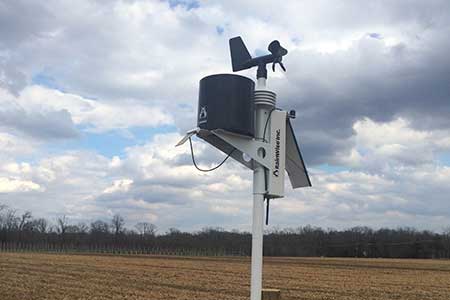
Modern Technology
Our weather station is a great example of the way we have integrated modern technology into our farming practices. Anyone can view its data on Weather Underground using the name Princeton Terhune. Our weather station also includes special monitors like leaf wetness. It’s connected to the Network for Environment and Weather Applications (NEWA), so farmers can collaborate and get trends in the weather and make predictions for what that might mean for particular crops.
